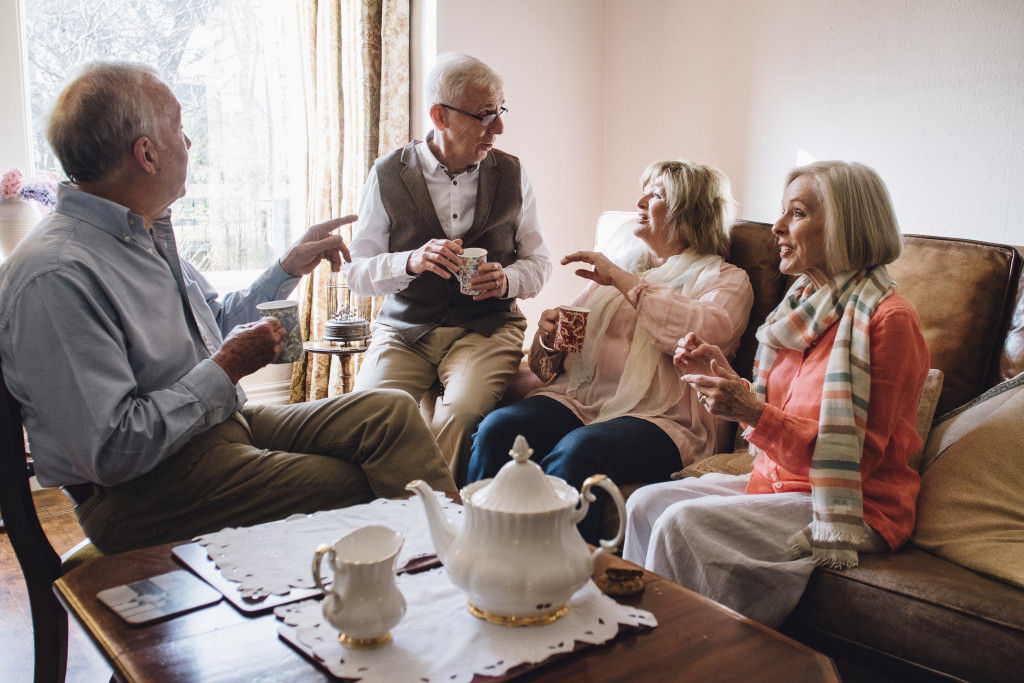A recent study found that a shocking number of adults aged 45 and older are lonely, and even more adults aged 65 and older are socially isolated. This is likely because older adults live alone more often, face chronic illnesses, or suffer from hearing loss– all risk factors for loneliness and social isolation.
Chronic loneliness is a growing problem among senior adults and can seriously affect physical and mental health. It’s essential to be aware of the signs of chronic loneliness in senior adults and develop strategies to help them combat this issue. Here are some tips that can help seniors deal with loneliness.
Keep Connected with Technology
Technology has made it easier than ever for seniors to stay connected with their loved ones, even if they can’t physically visit. Encourage your elderly family members to use video-chatting services like Skype or FaceTime. These are great ways to connect with their families without leaving the comfort of their homes.
Additionally, numerous social media platforms allow people to share photos and stories from their lives. These online platforms enable seniors to stay connected and curate meaningful relationships online.
Finally, with the recent rise of smart home technology, it’s now possible for seniors to have greater control over their living spaces. They can also stay connected to loved ones through voice-command devices like Alexa or Google Home.
By introducing these technologies into their lives, seniors can reduce feelings of isolation and enjoy a greater sense of connection from afar.
Stay Active Physically & Mentally
Exercise is beneficial for physical health. It also helps keep the mind active and engaged. Encourage your elderly family members to take up walking, biking, or swimming as an activity. These activities will get them out of the house and help them stay mentally and physically active.
There are also many activities specifically designed for seniors that can help break up the monotony of everyday life. These activities also provide an opportunity for socialization. Consider looking into activities such as yoga classes or community art projects.
If the senior adult has difficulty moving around, you can also work with a reliable hospice nurse. The nurse can help the senior adult to get regular exercise. Some therapies and exercises can be done while seated or reclining.
Mentally, crosswords, word puzzles, and reading are great ways to engage the mind. Consider online resources such as BrainHQ, which offers a variety of brain-training exercises for seniors. Additionally, playing cards or board games with family members can be a great way to stay connected with them and engage in friendly competition.

Volunteer Work & Social Engagement Programs
Countless volunteer opportunities offer seniors the chance to give back while providing them with an opportunity for social engagement. Consider looking into local soup kitchens or animal shelters in your area as potential volunteer opportunities.
Many cities also offer “social engagement programs” specifically designed for seniors. These programs often involve activities such as day trips or group excursions, which allow socialization while engaging in fun activities outside the home.
Alternatively, there are now a variety of online communities specifically designed for seniors – joining one can provide an excellent opportunity for connection and friendship.
Finally, there is always the option to volunteer within your community by performing simple acts of kindness that benefit people, such as walking a neighbor’s dog or helping out with groceries.
Have Regular Social Activities Seniors Can Attend
Organizing regular social activities can help seniors feel more connected and less socially isolated. Social activities include game nights, movie showings, or weekly dinners with friends.
These activities can be organized in a senior’s home. You can also organize them a local community center for those who can get out of the house. Some communities even have special clubs specifically designed for seniors that offer a range of activities.
Weekly or monthly activities can give seniors something to look forward to and allow them to interact with peers their age. Social interaction is important for everyone. But it’s crucial for the elderly since it helps keep their minds sharp and fight depression. Additionally, social activities are an enjoyable way for seniors to stay active and engaged with the world around them.
Suppose a senior’s physical or mental health prevents them from attending in-person activities. In that case, there are still ways to keep them socially connected. Seniors can join several online forums and discussion boards if they have access to computers or tablets. Technology can be used to connect with family and friends online, as well as participate in remote activities like virtual yoga classes or book clubs.
If you know someone dealing with chronic loneliness, don’t hesitate to reach out and support them in any way you can! These tips can help guide how to approach this difficult situation and create meaningful connections between senior adults and their loved ones. By following the tips in the article, you can all play a part in helping the senior population feel less alone during this difficult time.

